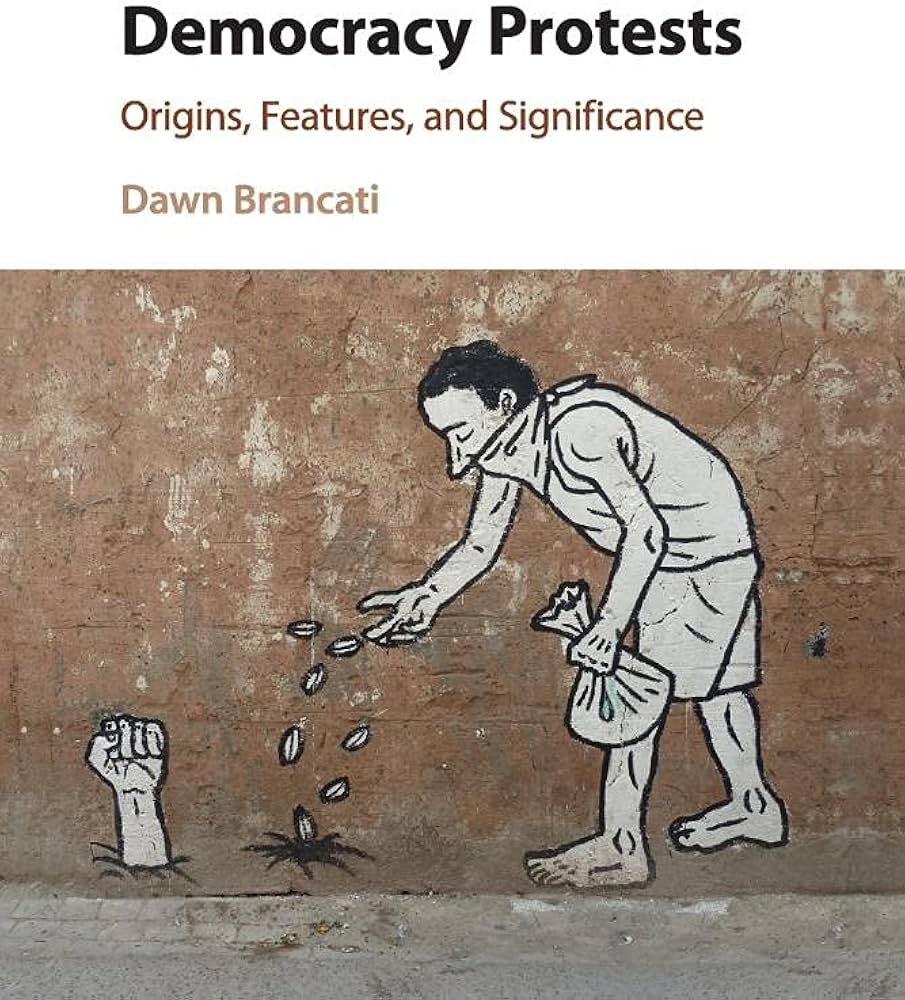Democracy Protests: Origins, Features, and Significance
Dawn Brancati
2016. New York: Cambridge University Press.
|
Why do democracy protests emerge in some countries at certain times, but not in others? Why do governments accommodate these protests, undertaking sweeping reforms in some cases, and in others find ways to suppress protests? In Democracy Protests, Brancati highlights the role of economic crises in triggering protests. She argues that crises increase discontent with governments, and authoritarianism in particular, and also increase support for opposition candidates who are more likely to organize protests, especially during election periods. Economic crises are also shown to create chances for opportunists to capitalize on anti-regime sentiment and mobilize support against governments. However, if crises are severe and protests concomitantly large, governments are likely to be compelled to make accommodations with protestors, regardless of their likelihood of retaining office. Brancati's argument rests on a rich statistical analysis of the causes and consequences of democracy protests around the globe between 1989 and 2011, combined with qualitative case studies. "Are protests a force for democratizing change? Brancati advances our understanding of this important topic by bringing together new empirical findings that convincingly show how the magnitude of economic crises condition the relationship between protest and democracy. Citizen unrest is likely to follow any form of economic crises, but this book helps us understand when and why such unrest will lead to significant political change." "Studies of democratization are finally turning back to the effect of economic and social forces in generating protest and displacing authoritarian regimes. Dawn Brancati's excellent book brings compelling new data to bear, explaining when democracy protests arise, succeed and also fail. Beyond its immediate contribution, the book helps set a new and fresh agenda for the study of regime change." |

|